Can Vegans Drink Wine? Exploring the Ethical Considerations
Exploring Ethical Considerations in Winemaking and Vegan-Friendly Options
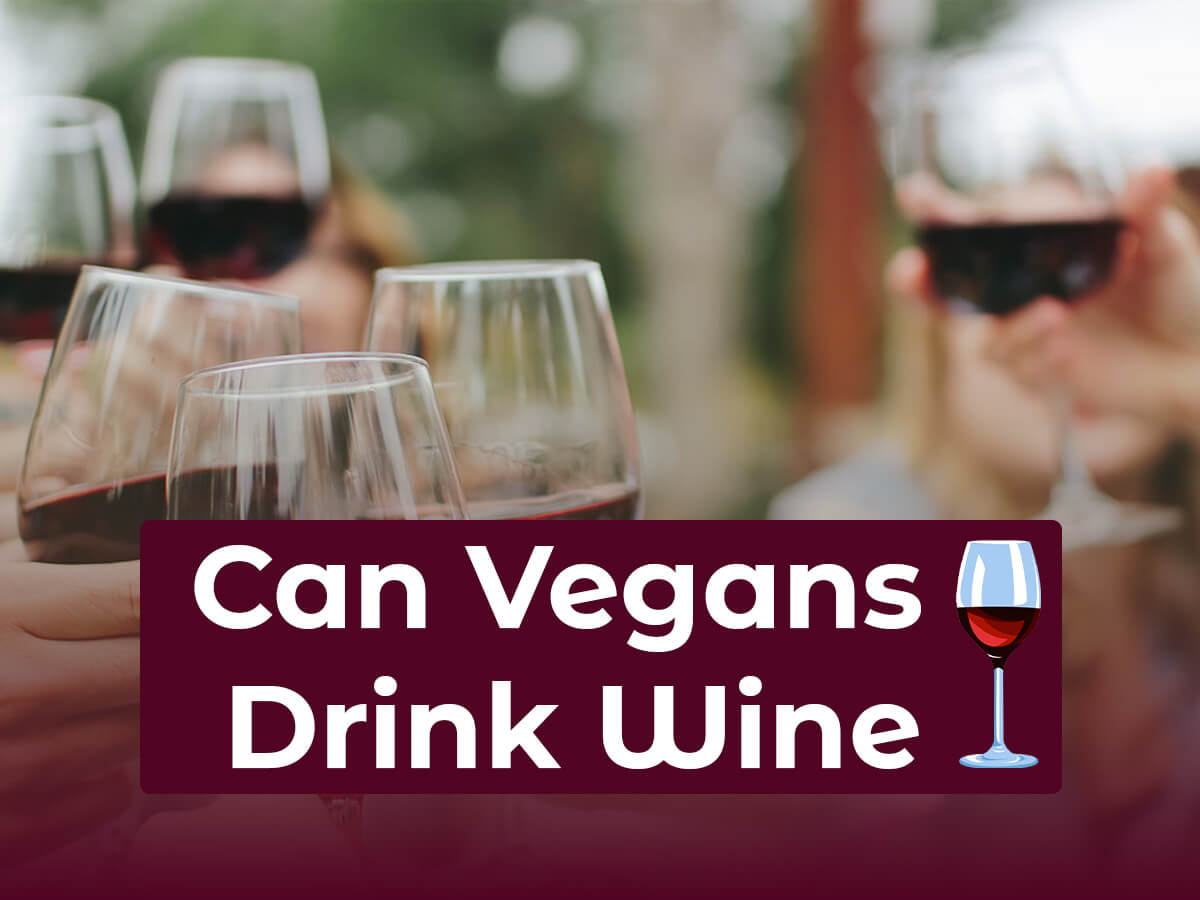
Are you a vegan who enjoys a glass of wine but is concerned about its production’s ethical implications? You’re not alone!
Many vegans have debated whether wine can fit into their lifestyle due to the potential use of animal-derived products in the winemaking process.
As someone who enjoys wine occasionally, I’d like to know if there are options for vegans who want to enjoy this popular beverage without compromising their beliefs.
Join me as I explore “Can vegans drink wine?” and explore the ethical considerations involved.
Are you a vegan wondering if alcohol is off-limits? Discover whether vegans can drink alcohol and find vegan-friendly options in our latest blog post: Can Vegans Drink Alcohol
In this article you will read:
The vegan philosophy: Understanding the ethics behind Veganism
As a vegan, I strongly believe every living creature has the right to a life free from harm and exploitation.
Veganism is more than just a dietary choice – it’s a philosophy and a way of life that seeks to minimize the suffering of animals as much as possible.
To find the best answer to the “Can vegans drink wine or not” we need to understand the philosophy of Veganism completely.
This section will provide an overview of the vegan philosophy and the ethical considerations that inform this way of life.
-
The Definition of Veganism
Veganism is a lifestyle that strives to avoid using animals for food, clothing, or any other purpose that harms them.
We choose a vegan lifestyle, so we do not consume meat, dairy, eggs, or honey. We avoid products made from animal-derived ingredients such as leather, wool, or silk.
The ultimate goal of Veganism, like us, is to create a world that is compassionate and free of cruelty, where animals are not exploited for human gain.
-
The Ethics of Veganism
As I know, the vegan philosophy is rooted in the belief that animals have inherent value and should be treated with respect and compassion.
We reject the idea that animals are mere commodities or resources for human use, and we advocate for protecting our rights.
This includes the right to live free from pain, suffering, and exploitation.
-
The Environmental Impact of Veganism
All of us know that a Holistic Approach to Sustainability Veganism is not only about animal welfare but also it’s about environmental sustainability.
So it is important for all vegans, including me, to have an environment-friendly diet.
Animal agriculture is a major contributor to climate change, deforestation, and pollution.
By adopting a vegan lifestyle, we can reduce our carbon footprint and help mitigate the negative impact of animal agriculture on the planet.

The winemaking process: animal-derived products used in traditional winemaking
You might be surprised if I say animal-derived products are commonly used in winemaking!
Traditional winemaking methods often involve animal products such as egg whites, gelatin, or fish bladders, which are used as fining agents to clarify the wine.
As a vegan, this raises an important ethical question: can I still enjoy wine with animal-derived ingredients? Can vegans drink wine without any ethical worries?
In this section, I envisage exploring the winemaking process and using animal-derived products in traditional winemaking for you.
-
The Winemaking Process
You may not know that winemaking is a complex process that involves several steps, from harvesting the grapes to bottling the wine.
The basic steps include the following:
- Crushing the grapes
- Fermenting the juice
- Aging the wine
- Clarifying the wine
- Bottling it
Fining agents are added to the wine during clarification to remove unwanted substances, such as sediment or haze.
-
Animal-derived Products Used in Winemaking
Traditionally, animal-derived products such as egg whites, gelatin, and fish bladders have been used as fining agents in winemaking.
Egg whites and gelatin are used to clarify white wines, while fish bladders are used for red wines.
These animal products help to remove impurities and improve the clarity and flavor of the wine.
-
The Ethical Implications of Animal-derived Products in Winemaking
If you are vegan, using animal-derived products in winemaking raises important ethical questions.
Many of us avoid these products, as they are derived from animals and can cause harm and suffering.
Some vegans also argue that using these products in winemaking is unnecessary, as alternative fining agents can be used.
So, due to dealing with these arguments, companies started to produce vegan-friendly wines.
If you want to get familiar with them,I’ll explore vegan-friendly wines comprehensively in the next section for your review.

The rise of vegan wine: An overview of vegan-friendly winemaking practices
As the number of vegans and environmentally conscious consumers continues to rise, so does the demand for ethical and sustainable winemaking practices.
In response to this trend, many winemakers embrace vegan-friendly methods and eschew animal-derived products in their winemaking process.
-
Alternative Fining Agents
In response to the demand for vegan-friendly wine, winemakers increasingly turn to alternative fining agents that do not contain animal products.
Bentonite, a type of clay, is a popular option used to clarify wine without affecting its flavor.
Activated charcoal is another plant-based option that removes impurities from wine.
Other plant-based alternatives include pea protein, rice protein, and potato protein.
-
Sustainable Practices
You might ask, “After changing fining ingredients, can vegans drink wine?” The answer lies in the other changes in the wine process!
In addition to using alternative fining agents, many winemakers also adopt sustainable and environmentally conscious practices in their winemaking process.
Organic winemaking involves using grapes that are grown without the use of synthetic pesticides or fertilizers.
Biodynamic winemaking involves treating the vineyard as a holistic ecosystem, using natural preparations, and following a strictly lunar calendar.
Natural winemaking involves minimal intervention and uses only naturally occurring yeasts.
-
Vegan Wine Certifications
As I investigated before, I have found that many winemakers seek vegan certification from organizations such as the Vegan Society or Vegan Action.
These certifications indicate that the wine has been made without animal-derived products and has been produced using ethical and sustainable practices.
Keep reading to understand how to choose the best wine for vegans!
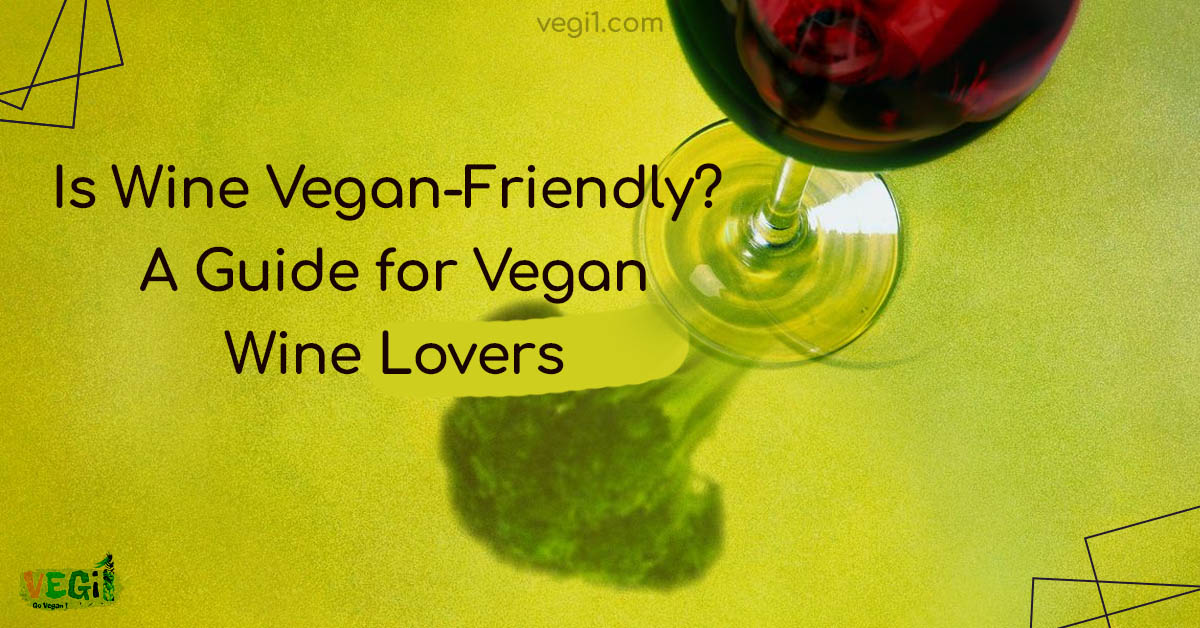
How to identify vegan wines on the label
You might be a vegan or environmentally conscious consumer like me, so you may wonder how to identify vegan wines on the label.
In this section, I will provide a guide to help you navigate the confusing world of wine labeling and ensure you choose vegan-friendly wines.
-
Look for Vegan Certification Symbols
As mentioned in the previous section, some winemakers obtain vegan certifications from organizations such as the Vegan Society or Vegan Action.
These certifications often feature a symbol or logo on the label indicating that the wine is vegan-friendly.
Look for symbols such as the Vegan Society’s sunflower logo or Vegan Action’s V-label.
-
Check the Ingredients List
If a wine does not have a vegan certification symbol on the label, do not panic! You can still check the ingredients list to determine whether it is vegan-friendly.
I recommend avoiding wines that contain animal-derived ingredients such as gelatin, isinglass (made from the fish bladder), or egg whites.
-
Research the Winemaker’s Practices
Suppose you are still determining whether vegans can drink wine or not . In that case, you can also research the winemaker’s practices.
Look for winemakers who use alternative fining agents or follow sustainable and environmentally conscious practices, often indicating vegan-friendly winemaking methods.
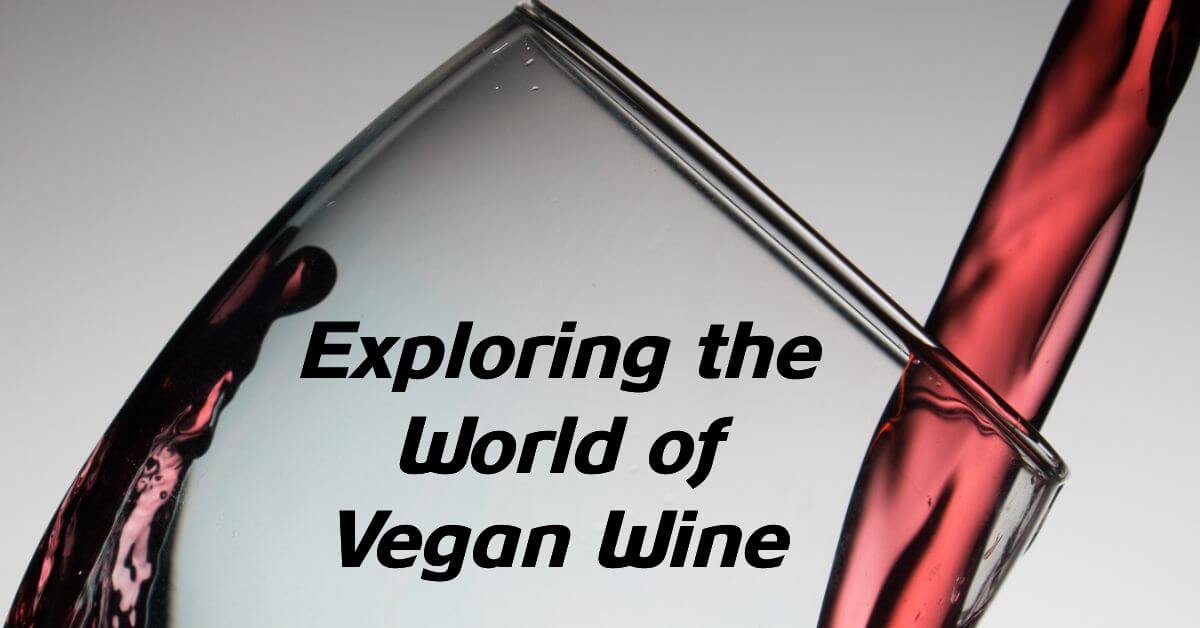
Common misconceptions about vegan wine: addressing concerns about taste and quality
Despite the growing popularity of vegan winemaking practices, you might still need more clarification and concerns about the taste and quality of vegan wines.
I will address some common misconceptions and concerns and provide insight into the taste and quality of vegan wines.
-
Vegan Wines are Inferior in Quality
One common misconception you might need help with is that vegan wines are inferior in quality compared to traditional wines made with animal-derived products. However, this is not true.
Many vegan wines have won awards and received ratings from critics, proving they can be as high in quality as traditional wines.
-
Vegan Wines Lack Flavor and Complexity
You might have another concern that vegan wines lack the flavor and complexity of traditional wines.
While it is true that some alternative fining agents may affect the flavor of the wine, many winemakers have found ways to use alternative fining agents without sacrificing flavor or complexity.
Further and even more importantly, using sustainable and environmentally conscious practices in vegan winemaking can enhance the wine’s flavor and complexity.
-
Vegan Wines are More Expensive
Some of you may hesitate to try vegan wines because you might assume they are more expensive than traditional ones. But this is only sometimes the case.
Although some vegan wines may be more expensive due to high-quality ingredients and sustainable practices, many affordable vegan wine options are also available.
So, I strongly recommend you refrain from misconceptions and concerns that hold you back from trying delicious and ethical vegan wines!
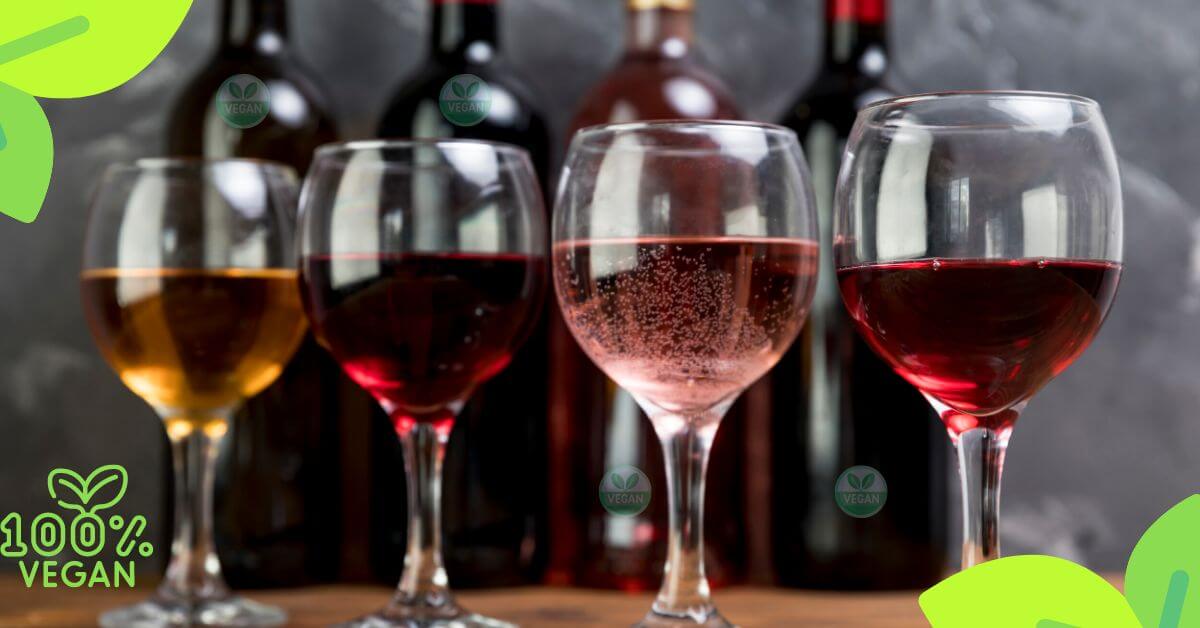
+ 5 of the best vegan-friendly companies
-
Frey Vineyards
Frey Vineyards was founded in Redwood Valley, California, in 1980. They are one of the oldest and largest organic and biodynamic wineries in the United States.
All of their wines are vegan-friendly, as they use no animal products in the production process.
Frey Vineyards is committed to sustainability and uses renewable energy sources to power its winery.
-
The Vegan Vine
The Vegan Vine produces a range of vegan-friendly wines that are made without the use of any animal products or by-products.
They partner with animal welfare organizations and donate some sales to support animal rights causes.
Their wines are also made using sustainable farming practices and packaged in eco-friendly materials.
-
Bonterra
Bonterra is a California-based winery that produces a range of organic and vegan-friendly wines.
They use no animal products in the winemaking method, and their wines are certified organic by the USDA.
Bonterra is committed to sustainable agriculture and uses cover crops, composting, and other practices to maintain soil health.
-
Girasole Vineyards
Girasole Vineyards is a family-owned and operated winery in Redwood Valley, California. They produce a range of organic and vegan-friendly wines.
They use no animal products to produce wine; their wines are certified organic by the CCOF.
Their wine varies for vegans, from rose to white wines.
Girasole Vineyards is committed to sustainability and uses solar power to run its winery.
-
Parducci Wine Cellars
Parducci Wine Cellars was founded in Ukiah, California, in 1932. They produce a range of vegan-friendly wines.
Parducci Wine Cellars is committed to sustainability and uses renewable energy sources to power its winery.
They produce one of the best tastes of vegan-friendly wine worldwide.
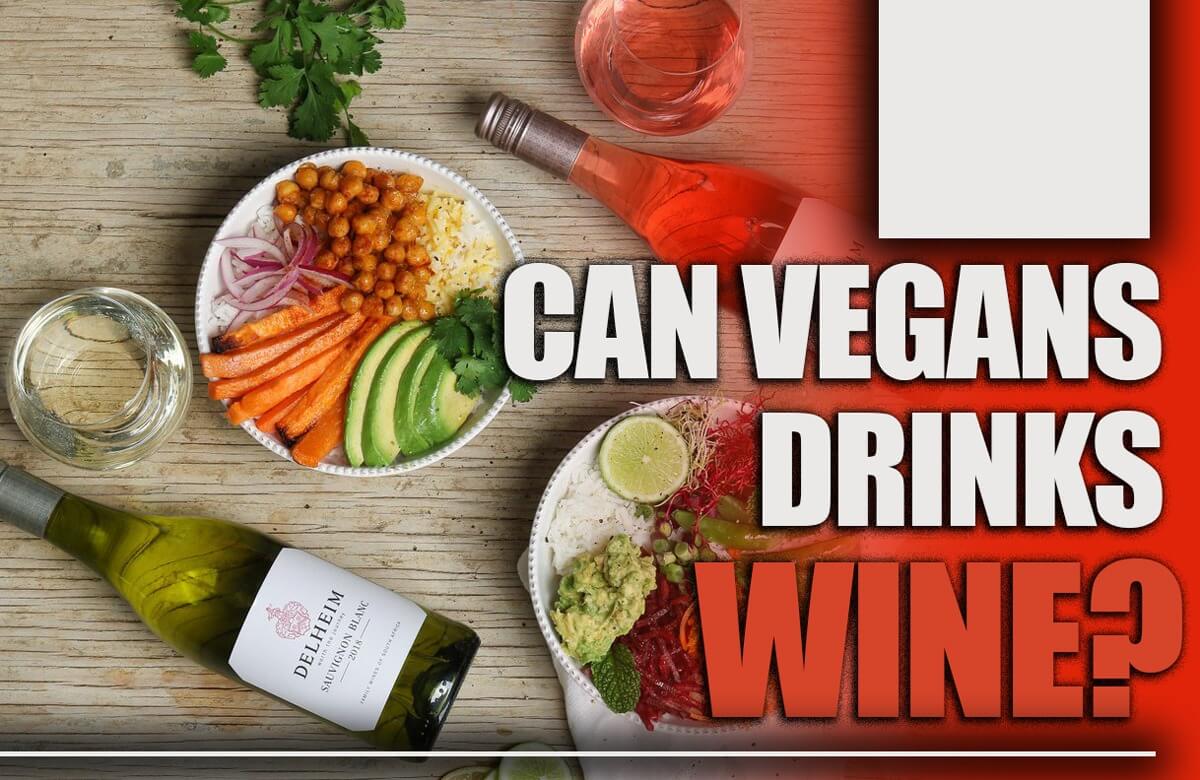
Let’s recap
The question of whether vegans can drink wine is complex. It requires careful consideration of the winemaking process and individual ethical beliefs.
While traditional winemaking practices may use animal-derived products, the rise of vegan winemaking practices and certifications has made it possible for vegans to enjoy wine without compromising their values.
As vegans, we must educate ourselves on winemaking and making informed choices that align with our ethical beliefs.
By checking labels, researching winemakers’ practices, and supporting vegan winemaking, we can ensure that our wine consumption is enjoyable but also ethical and sustainable.
So, next time you reach for a bottle of wine, ask yourself: Is this wine vegan-friendly? By making conscious and informed choices, we can positively impact the world and enjoy delicious wine simultaneously.











I appreciate the author’s thorough discussion of the ethical considerations surrounding vegan wine. The article provides a clear overview of the vegan philosophy and the potential use of animal products in winemaking. I was particularly interested in the section on vegan winemaking practices and how alternative fining agents can be used.
Thank you for your feedback. I am glad you found the article to be informative. I hope that this article will help vegans make informed choices about their consumption of wine.